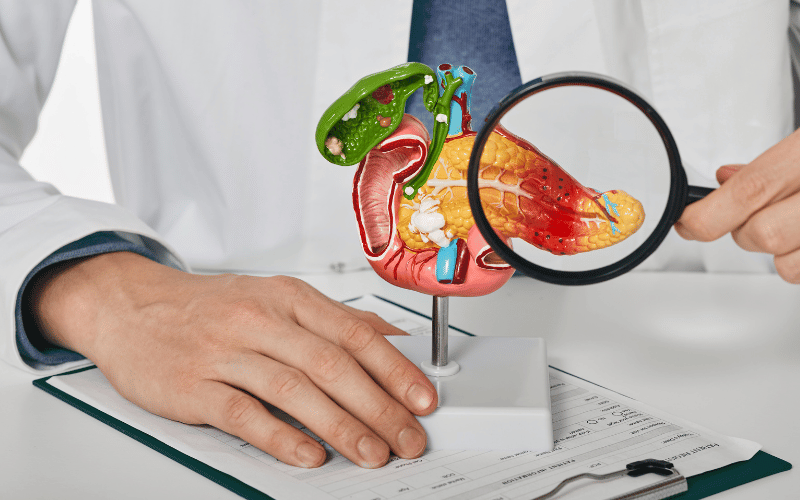3. Pancreatic Insufficiency: When the Pancreas Fails its Duty

The pancreas is an unsung hero in the digestive process. Nestled deep within our abdominal cavity, this organ produces essential enzymes that break down proteins, fats, and carbohydrates. Pancreatic insufficiency arises when the pancreas doesn’t produce enough of these vital enzymes. The result? Nutrients remain undigested and unabsorbed.
Let’s dissect this a bit further. The enzymes produced by the pancreas have specific roles. For instance, lipase breaks down fats, while amylase tackles carbohydrates. When there’s a deficiency in these enzymes, the body fails to unlock the potential energy and nutrients from the food consumed.
Several factors can lead to pancreatic insufficiency. Chronic pancreatitis, a prolonged inflammation of the pancreas, is a common culprit. Factors like excessive alcohol consumption or gallstones can trigger this inflammation, compromising the pancreas’s enzymatic output over time.
Symptoms of pancreatic insufficiency can vary but often revolve around digestive discomfort. Floating stools, bloating, and even unexplained weight loss might be indicators. Given the crucial role of the pancreas in digestion, this condition underscores the importance of a well-functioning digestive system.
Thankfully, enzyme replacement therapies exist. These treatments aim to replenish the missing enzymes, facilitating better digestion and absorption. Adjusting the diet, especially fat intake, can also prove beneficial for individuals grappling with this condition. (3)